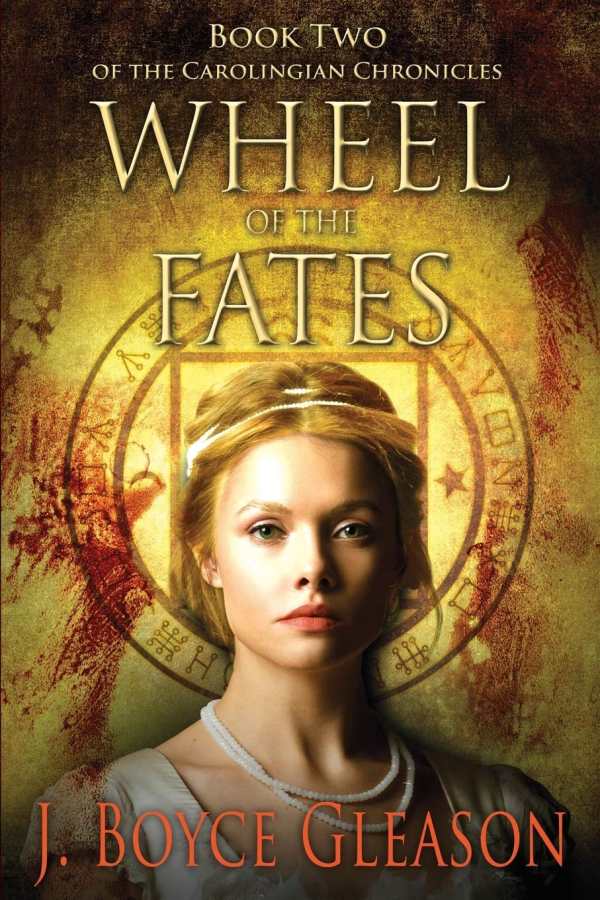Wheel of the Fates
Book 2 of the Carolingian Chronicles
The powers of kings and religions are gained and lost in the exciting historical novel Wheel of the Fates.
Set during a dark period in Europe’s history, J. Boyce Gleason’s Wheel of Fates is a gripping historical novel concerned with the religious and political uprise of the Carolingian dynasty.
The book opens in a political vacuum: Carloman and Pippin’s father, Charles Martel—who exercised capable rule over Merovingian lands in the family’s absence and assisted with the spread of Christianity in the process—is dead, and Carloman has angered much of the land with his violence against pagan factions. As the two Frankish mayors struggle to regain control over their father’s territories, others across the Frankish Empire work to soak up their shaky powers.
Among those vying to determine the land’s future are Odilo, the pagan husband of Charles’s daughter, Trudi, and Odilo’s brutal warlord brother, Theudebald. Meanwhile, beautiful and wily Miette, who’s been raised to the station of a lady, but who is often ignored by her much older husband, becomes the Parisian host and lover to Childeric, the coddled but cruel hopeful to the Merovingian throne.
The book trades between battle scenes and accounts of fraught domestic concerns, generating interest with each shift. Its bold and capable women characters steal the spotlight throughout—outwitting attempts at subterfuge, proving skilled at diplomacy, and carrying legacies forward through their fierce and determined acts of love.
The book’s struggles among sycophants, entitled heirs, and warriors take place during the Early Middle Ages, a period that’s established with an able and immersive mix of accessible language and evocative details. In short spaces, the text covers courtly dress, bustling markets, mêlée tournaments, and savvy political maneuvers well. Though the book is the second in a series, understanding fast develops about the complicated mechanizations of Pippin and company’s world, in which conversations are swift but replete with meaning. Though it works toward outward royal triumph, this rich and exciting narrative also induces simultaneous senses of hope and deep dread for the events yet to come in the series.
However, the book’s occasional lapses into unnatural, period-adjacent speech (a teenager prefaces exciting news with “you will assuredly pee!”) are interruptive, as are the book’s infrequent but cloying descriptions of the weather and the beauty of the day. Further, there are several violent sexual scenes that, though they are an accurate picture of the gender politics of the era, border on gratuitous. And the book’s frequent instances of missing and incorrect punctuation, coupled with errant and inconsistent capitalization, are a further impediment.
Power is gained and lost in the battles and negotiations of the exciting historical novel Wheel of the Fates.
Reviewed by
Michelle Anne Schingler
Disclosure: This article is not an endorsement, but a review. The publisher of this book provided free copies of the book and paid a small fee to have their book reviewed by a professional reviewer. Foreword Reviews and Clarion Reviews make no guarantee that the publisher will receive a positive review. Foreword Magazine, Inc. is disclosing this in accordance with the Federal Trade Commission’s 16 CFR, Part 255.

